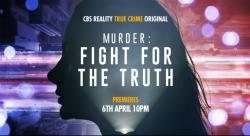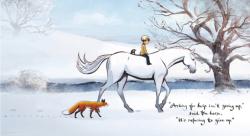By Jason Solomons
Following nothing Like a Dame comes this fireside chat with Sir Ian McKellen, the great Gandalf himself plonked in a big red club chair, all snuggly in a cardigan and twinkling away about his life on the stage, in film, and as a
gay activist and spokesman. There’s barely a dull second, such is the mellifluous murmur of memory and the expert timing of the narrator’s moistening eye.
Inspired by McKellen’s colourful reminiscences, director Joe Stephenson has had a go at some dramatic black and white reconstructions of scenes for which no archive footage or photography exists, such as McKellen’s memories of performing for his family in Wigan – as Charlie Chaplin or Sir Thomas Beauchamp – or his entrance interview for Cambridge, where Henry V’s ‘Once more unto the breaches’ speech got him a scholarship.
No doubt about it, the theatre triumphs over everything, as one knew it would; McKellen’s gratefulness at finding a sense of belonging and kinship with the ‘troupe of players’ shines through, the dressing up, the greasepaint and the smell of the crowd. ‘I like to be so close I can look at the whites of their eyes,’ he says. McKellen doesn’t burst with theatrical anecdotes the way judi Dench or Maggie Smith do, and his attempts at backstage funnies fall a bit flat, though he seems throatily amused by them.
He’s serious about the theatre, and despite his star status as the leading stage actor of his generation, his commitment to regional theatre in the 80s is laudable. He professes a distaste for the circus of the West End
and remembers being at the West Yorkshire Playhouse when his Oscar nomination came through in 1999 for playing James Whale in Gods and Monsters. Oddly, he’s disproportionately gooey over the Broadway reception he received for Amadeus in 1981, and most proud of the Tony he won for that. ‘new York’s a theatre town,’ he gasps.
Ultimately, it’s his wrestles with sexual identity that are most affecting, the description of his relief at coming out at the age of 49 quite beautiful. His activism against Section 28 and the subsequent work he did founding Stonewall probably do outweigh even his legacy as an actor, and so joyous does he look when advocating or flying a rainbow flag in old photos that it occurs this may well have been his greatest part.
I’ve worked with McKellen – he directed me in a student production at Oxford, helping us compile and mount a Shakespeare montage show encompassing the history plays and some comedies – and can confirm he’s a wonderful teacher and an impish interpreter of the Bard. I’d seen his one-man-show, Acting Shakespeare, back in the mid-80s and still cite it as one of the most influential evenings of my life, one of the greatest shows I’ve ever seen. I told him this, and he told me it was the show he was most proud of. I never knew until this film, however, that he donated all the proceeds from it to AIDS-related charities.
Of his films, Richard III is still probably his best, though I did love Gandalf amid all that Hobbity nonsense, and Gods and Monsters is undoubtedly fine work. Magneto in the X-Men series, I have no time for and, professionally discreet though he remains, McKellen’s no less dismissive about it. Playing the Part is lovely to watch and listen to, handsomely and affectionately assembled, gently camp and quietly inspirational. And, like all the very best actors, McKellen leaves you knowing there’s a lot more to the man behind the mask.










